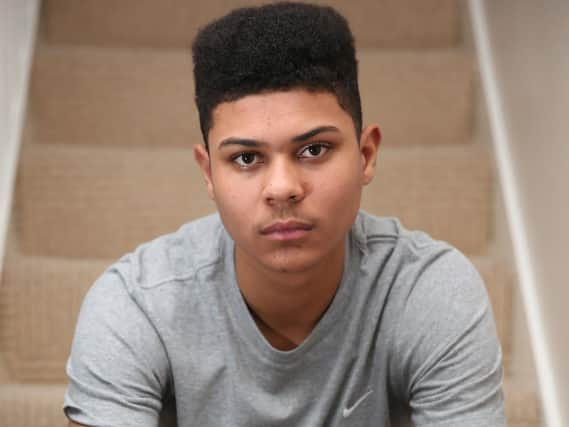Danny Hall: There's only one loser in the Luke Francis, Sheffield Wednesday story


He has ability, too; Rotherham United’s academy boss Garreth Barker says he’d ‘love’ to work with the striker. Chesterfield, York City, Grimsby Town and Hull City are also said to be interested.
All Luke needs is a chance.
Instead of pursuing his dream of professional football in a club’s academy, Luke instead turns out for Handsworth Parramore’s U18 side and studies a BTEC Sport qualification at Hillsborough College.
Advertisement
Hide AdAdvertisement
Hide AdThe reason? Partly a contract signed by his mother when Luke was 13; partly Sheffield Wednesday’s right to a fee - which could rise to over £250,000, payable by any club that signs him.
But in real terms English football’s compensation system - one all clubs bought into and profit from - is preventing a 16-year-old boy from earning a living, doing a job he wants to do - and is, if Barker’s expert opinion is anything to go by, capable of doing.
The story piqued interest, both in Sheffield and nationwide, after Luke’s story was featured in The Star on Tuesday.
In short, the striker spent 17 months at Wednesday’s Academy after being scouted as an 11-year-old. He left after a season, because he didn’t enjoy it; was persuaded to return, played three games then left. Luke and his mum, Susan, signed a “Mutual Compensation Notification” note which included three words at the bottom: “COMPENSATION IS PAYABLE.” No explanation, no detail.
Advertisement
Hide AdAdvertisement
Hide AdSusan was, in fact, left wondering if it meant she had to pay anything.
In fact, that compensation - a figure set by the football authorities, not by Wednesday - could cost any of Luke’s potential suitors up to £260,000 (plus 25 per cent sell-on fee.)
That consists of a £10,000 fee if he signs a professional contract and £2,500 for every first-team appearance he makes, up to a maximum of 100 games.
Advertisement
Hide AdAdvertisement
Hide AdThe family says it has dissuaded clubs from taking the plunge.
As The Star’s story made clear, Wednesday have broken no rules; they also agreed to waive a £25,000 fee they would be due if Luke signed scholarship terms with another club, and will accept £10,000 - instead of £25,000 - if he makes it as a pro.
The Francis family feel Wednesday’s demands are prohibitive to Luke’s future career. The club - operating as a business, after all - feel they are demanding what is fair.
This is far from a black and white issue, though, and in the shades of grey exists a more pertinent question; how did it come to this?
Advertisement
Hide AdAdvertisement
Hide AdThe benefits of the rules are obvious, especially in an era when youngsters can command eye-watering fees with Premier League clubs willing to stockpile dozens of wonderkids, in the hope that a couple will make the grade.
But there is inevitably a fall-out for kids such as Luke, who are held back by decisions made well before he had the maturity to understand them and their ramifications.
Susan, Luke’s mum, has attracted her fair share of criticism, too, if Twitter is anything to go by but is it fair to punish her as well, for a decision made out of protection for her unhappy son, who just wanted to enjoy football again?
Yes, Wednesday have broken no rules in their stance on the matter. And no, there is no guarantee that Luke would make it as a professional footballer.
But he is surely owed the chance to try.
Advertisement
Hide AdAdvertisement
Hide AdThe Elite Player Performance Plan (EPPP) scheme, designed to improve the quality and quantity of home grown players produced by top English clubs, is relatively new and unlikely to be changed.
A specialist lawyer at Shakespeare Martineau is working with the family to seek a solution but, with Wednesday’s stance looking concrete, Luke’s time may be running out.
While the Francis family blame Wednesday, and the Owls stick to their guns, Luke will lace up his boots once more, pull on his Parramore shirt and dream of what could have been.
There are no winners in this sorry situation, but only one real loser.